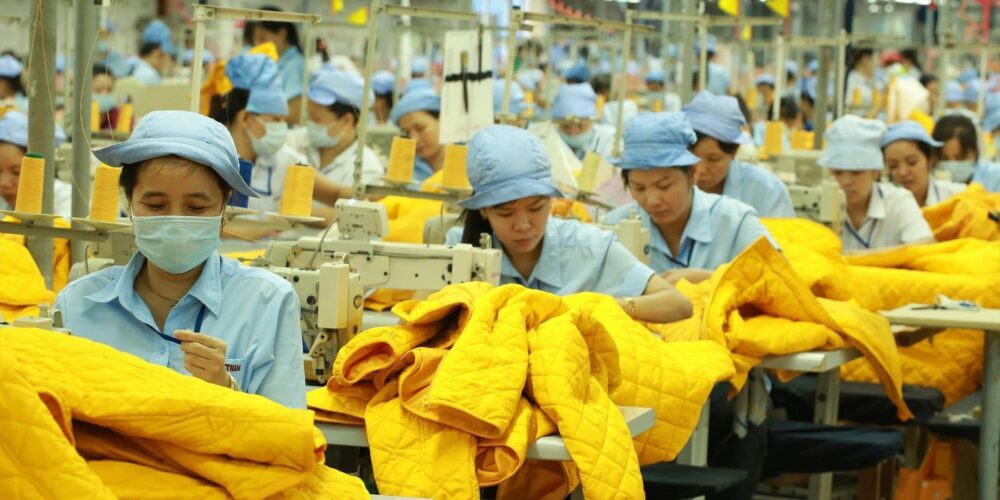The CPI, in conjunction with Socialist Voice, streamed two talks in September under the title “Economics for Workers.” The guest speaker on each occasion was a leading Marxist economist.
The thread that linked the interviews by Graham Harrington of the CPI was an attempt to understand the current crisis (or crises) of capitalism while drawing the attention of workers to the general economic trends that have brought us to the present moment and, crucially, what we should expect in the coming year as capitalism calibrates yet another vicious offensive against the working class of all countries.
The first was John Smith, regular contributor to Monthly Review and author of Imperialism in the Twenty-First Century, an essential book for those seeking to apply Lenin’s analysis to the contemporary era. He made early reference to a term coined by another writer, “the great capitalist climacteric,” to underline the severity of the current crisis.
In keeping with the themes of his book, Smith focused on the relationship in recent decades between the imperial core (the global North) and the periphery (the global South). Investors have deserted the global South since the pandemic hit, depriving those countries of capital reserves. At the same time $8 million has been committed by the global North to propping up their economies and, more specifically, the profits of the capitalist class since restrictions have been imposed.
The massive debts that peripheral countries owe to the sovereign governments of core countries have been frozen—not written off!—which only means that the reduced incomes of the debtor-countries are paid to private creditors as a priority.
However, as Michael Roberts, a blogger and author of several books on economics, pointed out, the shock the initial lockdowns have caused on production and consumption in Western countries will certainly lead to an avalanche of private-sector bankruptcies in the next twelve months. Such companies have accumulated massive amounts of debt since the stock market crash of 2008, buying back their stock from shareholders in the vain hope that share prices would continue to rise.
Contrary to the bourgeois media narrative that economies are better equipped this time around to deal with a prolonged slump than in 2008, both Smith and Roberts emphasised that a day of reckoning for heavily indebted businesses and national treasuries is on the horizon.
One of the linchpins of Marxist economics, the tendency of the rate of profit to fall, was referred to regularly during both broadcasts. Smith pointed to the consistent decrease in productivity since the 1980s, as well as the decline in capital investment relative to the stock of private capital. Capitalism has little incentive to invest in new production facilities: a job can be outsourced to a low-wage country, which blunts the need to develop new technologies for increased efficiency. Instead of tangible commodities and infrastructure, modern figures for capital investment include expenditure on such unproductive activities as advertising and protecting patents.
On the other hand, Roberts evoked the tendency of the rate of profit to fall when explaining that the crucial factor in predicting a crisis is profits, not the emergence of monopolies. He noted that General Motors was once a giant of the automobile industry but that such is no longer so. Even when dominant transnational corporations emerge there is always an element of competition in capitalism. Breaking up monopolies would not change the structure of the capitalist system: it is the squeeze on the total amount of profits because of the tendency of the rate of profit to fall that most accurately tracks the capitalist system’s trajectory at any given time.
The role of central banks and access to hard currencies (most notably the American dollar) is a component of the two economists’ analyses. Smith singled out the large amounts of foreign-currency debt that beleaguer many countries in the global South. For these debtors to gain access to credit immediately they must obtain local currency from their central bank. But printing more money debases the value of the currency, making foreign debts even more expensive, perpetuating a vicious downward spiral.
In response to a question from the host, Roberts rubbished “modern monetary theory” by arguing that it is just an updated form of Keynesianism, explaining that capitalism doesn’t work the way the soft-left, respectable economists think it does, and that this theory is not useful for any country that doesn’t have its own monetary policy (like the Irish state) or a debtor-country (for reasons outlined above).
In addition, injecting more money into the economy by means of modern monetary theory ignores the fundamental problem of private owners storing their fortune in investment funds to generate a return instead of generating employment. Yet again the Keynesians hold out the false hope of a “fairer capitalism.”
Smith and Roberts sounded a note of extreme caution for the times ahead. International trade is increasingly used as a weapon, and much of the consensus that followed the Second World War has evaporated. The imperialist core (the United States, the major European powers, and Japan) is weaker than at any time in living memory, while China and other countries threaten their hegemony.
We are in the midst of an uneasy “calm before the storm” as the full extent of the upheaval of recent months transpires, given the frailties that were appearing before the pandemic.
Each guest in this series made an insightful contribution to the challenges that befall us as communists and working-class activists. The appeal of the series goes far beyond the CPI, and anyone seeking to hone their thinking on political economy would be well advised to listen back to the interviews on the Socialist Voice Youtube channel.
■ Imperialism in the Twenty-First Century by John Smith and The Long Depression by Michael Roberts can be purchased in Connolly Books (43 East Essex Street, Dublin) or on line at connollybooks.org.






